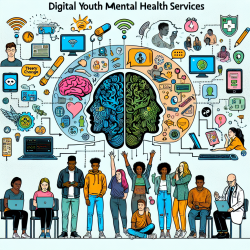The issue of Female Genital Mutilation/Cutting (FGM/C) remains a significant global challenge, with deep-rooted cultural, social, and economic implications. As practitioners in the field of healthcare and education, it is crucial to stay informed and equipped with the latest research findings to effectively combat this practice and provide comprehensive care for affected individuals.
Understanding the Research
The research article titled "Female Genital Mutilation/Cutting: sharing data and experiences to accelerate eradication and improve care: part 2" offers valuable insights into the current state of FGM/C practices and the efforts being made to eradicate them. It highlights the importance of data sharing and collaborative efforts among healthcare professionals, educators, and community leaders to address this issue comprehensively.
Implementing Research Outcomes
Practitioners can enhance their skills by implementing the outcomes of this research in several ways:
- Education and Training: Incorporate FGM/C education into training programs for healthcare professionals. This includes understanding the cultural context, health implications, and legal aspects of FGM/C. Utilizing case studies, videos, and e-learning tools can significantly enhance learning outcomes.
- Cultural Competence: Develop cultural competence by engaging with community leaders and affected individuals. Understanding the socio-cultural dynamics that perpetuate FGM/C is crucial for effective intervention and advocacy.
- Advocacy and Policy Development: Advocate for policies that support the eradication of FGM/C and protect affected individuals. Collaborate with policymakers to ensure that laws are enforced and that there is a supportive framework for survivors.
- Research Participation: Encourage further research by participating in studies or facilitating data collection. This helps in understanding trends, evaluating interventions, and developing evidence-based strategies for prevention and care.
Encouraging Further Research
The article underscores the need for ongoing research to fill knowledge gaps in educational strategies, cultural understanding, and intervention effectiveness. Practitioners are encouraged to engage in or support research initiatives that aim to develop innovative solutions for FGM/C eradication.
By integrating these insights into practice, practitioners can play a pivotal role in accelerating the eradication of FGM/C while providing compassionate care to those affected.










